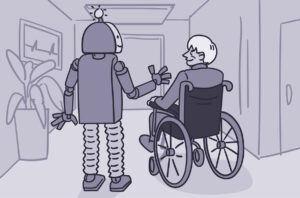Emergency Room Questions: When Will I See My Doctor
At some point in your life, the chances are that you will make a trip to the emergency room. Your child may break an arm at a gymnastics class, or you may accidentally slice your finger with your sharp kitchen knife.
About 120 million Americans visit the ER annually and the average wait time across the US, according to the Centers for Disease Control, is at least 55 minutes, especially at night or over the weekends.
According to FrontLine ER, if you or your loved one experiences an emergency, the first thing you should do is to call an ambulance. The paramedics can begin emergency care immediately as you are heading to the nearest emergency facility. It will save you the time you would have spent at the triage, as you will get to see the doctor immediately.
According to FrontLine ER, there are several things you can do to ensure that you see your emergency physician soonest.
Call Your Doctor before You Go
If you are in Richmond or Dallas TX, call FrontLine ER on (281) 766-3811 to inform them that you are on your way. The staff will be ready and well-coordinated to receive you. We are open all day, every day to cater to your urgent medical needs.
Also, if you happen to have a chronic illness that requires frequent visits to the doctor, utilizing emergency services often can help speed up your care because the doctors already have access to all of your medical information and history.
Carry Your List of Medication
Some drug interactions or allergies can be very harmful to your health. Before commencing on treatment, the doctors will ideally need to know about all the medication that you have been taking. It is beneficial to keep the names of the drugs on a card in your wallet. Better still; carry all the medication in a bag to show the doctor. The American College of Emergency Physicians recommends having an emergency file. The file should contain, your insurance cards, list of medication, allergies, and previous operations.
Have Your Tests and Medical Records Ready
Another reason why you may delay in seeing your doctor at the ER could be lack of medical records. Having an emergency file of your previous medical records and tests from other hospitals is vital in helping the doctor get the full picture of your condition. FrontLine ER recommends that this folder should be in a convenient place where you can quickly grab should you have a visit to the ER. It will also speed up the process and save the time that will be taken to carry out some diagnostic tests.
Ensure That the ER Can Handle the Problem That’s Ailing You
When you know beforehand whether the ER to which you are going to have the right staff to treat your problem, it saves you a lot of time. FrontLine ER has a team of skilled professionals who will provide you with the highest standards of medical care for you or your loved ones. They are fully equipped with high-quality imaging diagnostics to ensure the best possible treatment.
It’s good to understand the fact that, in an emergency room, unless your condition is very severe your doctor will see you after a person who came in with a worse state. Once you accept this and remain calm, the staff will even be very responsive when you have a reasonable request. If it is a pain you are experiencing, they will offer you temporary relief as you wait for your turn.
Avoid Weekends, Nights, and Holidays
Unless you are having a life-threatening experience or involved in a severe motor vehicle accident or a fall, try as much as you can to avoid the mentioned days. Due to low patient traffic at night and over the weekends, most emergency rooms tend to have low staffing. Surprisingly, it is during these times that most emergencies can occur. FrontLine ER is open round the clock to ensure you get treatment whenever you need.
Unless it is one of the most severe emergencies, one should be prepared to wait before they get to see a doctor.
In case you have time before going to the ER, you could consider carrying something to do as you wait. You could bring magazines, books or a pen and paper to jot down any questions you may have for the doctor. If you are accompanying children, carry for them things like stuffed animals, crayons, and toys to keep them busy if they are not too ill. Ask the medical staff whether it’s ok to take any foods or drinks as you wait to see the doctor. It is essential, so as not to interfere with any tests and treatments.
It’s not easy to predict when exactly you will see your doctor at the ER; however, rest assured that when the time comes, the doctors will provide whatever attention is required right away. Once the doctor attends to you or your child, he/she may give a written or computer generated documentation of the visit, to share with your primary doctor, so that they are aware of the proceedings.




